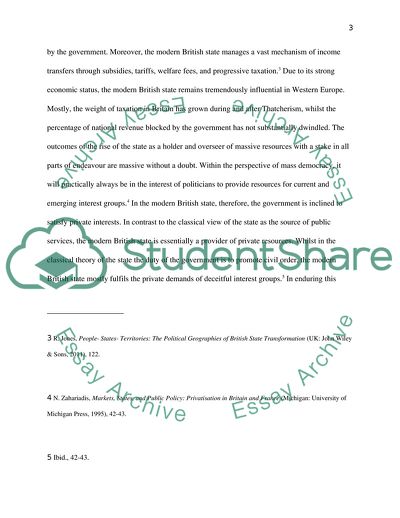Cite this document
(What is the State of Britain Essay Example | Topics and Well Written Essays - 2129 words, n.d.)
What is the State of Britain Essay Example | Topics and Well Written Essays - 2129 words. Retrieved from https://studentshare.org/history/1795761-what-is-the-state-of-britain-answer-engaging-with-concepts-of-public-sector-and-civic-culture-governance-and-globalism
What is the State of Britain Essay Example | Topics and Well Written Essays - 2129 words. Retrieved from https://studentshare.org/history/1795761-what-is-the-state-of-britain-answer-engaging-with-concepts-of-public-sector-and-civic-culture-governance-and-globalism
(What Is the State of Britain Essay Example | Topics and Well Written Essays - 2129 Words)
What Is the State of Britain Essay Example | Topics and Well Written Essays - 2129 Words. https://studentshare.org/history/1795761-what-is-the-state-of-britain-answer-engaging-with-concepts-of-public-sector-and-civic-culture-governance-and-globalism.
What Is the State of Britain Essay Example | Topics and Well Written Essays - 2129 Words. https://studentshare.org/history/1795761-what-is-the-state-of-britain-answer-engaging-with-concepts-of-public-sector-and-civic-culture-governance-and-globalism.
“What Is the State of Britain Essay Example | Topics and Well Written Essays - 2129 Words”, n.d. https://studentshare.org/history/1795761-what-is-the-state-of-britain-answer-engaging-with-concepts-of-public-sector-and-civic-culture-governance-and-globalism.


